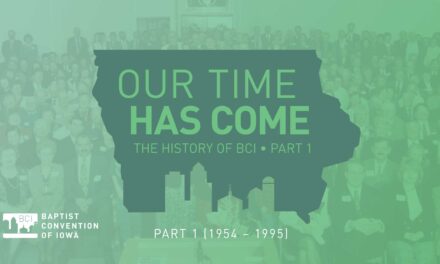Results Underscore Need for Christians to Understand and Defend their Faith
CHARLOTTE, N.C.—A recent Gallup survey shows a growing decline in the percentage of Americans who believe the Bible is the authoritative, inerrant, infallible word of God.
The annual Gallup poll found that just 28 percent of Americans believe that the Bible is the actual word of God and that it should be taken literally—a steep decline from the nearly 40 percent who answered this question in the affirmative in the late 1970s. The percentage of those who believe the Bible “is the inspired word of God but not everything in it should be taken literally”—a question vague in its meaning as some might say, for example, that the Bible is literal but Jesus’ parables are non-literal stories that contain eternal truths—dropped from 49 percent just two years ago to 47 percent today.
Meanwhile, about one in five Americans, or 21 percent, views the Bible in purely secular terms—agreeing with the statement that the Bible is “an ancient book of fables, legends, history, and moral precepts recorded by man.” This is an increase from 13 percent in 1976 and 17 percent just two years ago.
Dr. Richard Land, President of Southern Evangelical Seminary (SES, www.ses.edu) said the numbers represent both good news and bad news.
“The good news is that despite the ambiguity of the questions, it appears that approximately three out of four Americans are comfortable with the Bible being the Word of God, to be taken seriously as divine communication to man,” Land said. “The disturbing news is that the percentage of Americans who believe the Bible is an ancient book of fables, legends, history, and moral precepts recorded by man has jumped in two years from 17 percent to 21 percent, which is as high as it has been in the Gallup poll’s history.”
The Gallup survey asked the following three-part question:
Which of the following statements comes closest to describing your views about the Bible?
1)The Bible is the actual word of God and is to be taken literally, word for word.
2)The Bible is the inspired word of God but not everything in it should be taken literally.
3)The Bible is an ancient book of fables, legends, history, and moral precepts recorded by man.
Additionally, to clarify non-literal believers’ viewpoints, Gallup offered half of the respondents a fourth option:
4)The Bible is the actual word of God, but with multiple interpretations possible.
Land said that although the questions themselves are subject to multiple interpretations, the poll highlights that the task before Christians is clear, and the role of institutions like Southern Evangelical Seminary in teaching apologetics, critical.
“Clearly, Christians have their work cut out for them in convincing more of their fellow Americans to take the Bible seriously as God’s Holy Word.” Land said. “That’s what apologetics is all about—giving people real and compelling answers to their honest questions about the authority and veracity of Scripture and all that Scripture teaches.”
SES is just a few short months away from the 21st Annual National Conference on Christian Apologetics, which will bring together leading apologetics experts who will discuss issues including God and Science, Christianity and Culture and Historical Apologetics.
“One of the reasons SES exists and one of the reasons we have our apologetics conference is to provide people with the evidence and arguments that show the most reasonable answer to the question of if the Bible is the infallible word of God is a resounding, ‘Yes!’”
At the conference, featured speaker Dr. Bryant Wood, who has conducted extensive archaeological field work in historical biblical regions, will speak on this very topic, as it relates to the authoritative and historical significance of the Bible.
Wood has served as co-director of a survey of several areas of Jordan, Israel and Egypt and was also a volunteer at the Ben Gurion University of the Negev excavation at Haruvit in the northern Sinai. He was named Director Emeritus of the Maqatir excavation in 2014.
He is a specialist in Canaanite pottery of the Late Bronze Age and the author of “The Sociology of Pottery in Ancient Palestine: The Ceramic Industry and the Diffusion of Ceramic Style in the Bronze and Iron Ages,” as well as numerous articles on archaeological subjects published in various academic journals. He has spoken with media outlets around the world about his research on ancient Jericho that demonstrates the historicity of the biblical account of the capture of the city by the Israelites.
Wood has been awarded grants from the National Endowment for the Humanities, the Endowment for Biblical Research and the National Science Foundation to continue his archaeological research. He is on the board of directors of the Near East Archaeological Society and is a fellow of the Institute for Biblical Research. He is Director of Research with Associates for Biblical Research and founder and consulting editor of Bible and Spade magazine.
At the conference, Wood will speak to the historical significance of the Bible during his two talks: “Victory at Ai: Archaeology and Joshua 7-8” and “The Walls of Jericho: Did They REALLY Come Tumblin’ Down?”
Southern Evangelical Seminary is an accredited Christian college and seminary in Matthews, N.C., offering a wide variety of degrees including bachelor’s, master’s and doctorate degrees. Programs can be completed through residence in the Charlotte, N.C., area or online. The award-winning education at SES is distinctively Christian, focused on evangelism and world-engaging defense of the Christian faith—Christian Apologetics.







